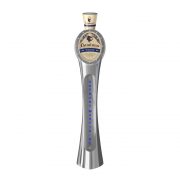5 months ago Is it a fad, a search for new niches in the brewing market or the renewal of an ancient tradition to fulfil the needs of a more enlightened and demanding consumer? Whatever the reason, today there is a beer for each season, each with its own specificities. Christmas beer has been around for a long time now. An Anglo-Saxon tradition introduced in Belgium by John Martin in 1924 with his famous “Gordon Xmas”, a special Scotch Ale elaborated with the malt and hops leftover from the autumn harvest. This gives it a more pronounced aroma and taste, with a spicy flavor, particularly well suited to the holiday season. Strong and heartwarming for the celebrations, it is also a great commercial success in Belgium and abroad, and many brewers imitating the John Martin tradition with their own Christmas beer. The “Xmas” is far from being the only beer brewed for a specific time of year. Since the Middle-Ages, barley and hops have been harvested following the cycles of nature, in two major periods, spring and fall. The spring crops, fresher and less matured, were stored in the granaries until winter. During Advent, one could enjoy an “autumn” or Christmas beer while brewing the grains for making the lighter beers, with less alcohol but very refreshing, designed to sustain the workers in the fields. One beer of this kind, the “Blanche”, made from wheat and slightly malted barley, originally produced in the Louvain region, has enjoyed a wonderful renaissance in Belgium and abroad. This beer was originally naturally acidulated by the addition of milk ferments. Today, the preference is to obtain its particular taste by adding orange peel and coriander, not to mention the lemon slice ritual, much appreciated by some tasters. In the Timmermans Brewery, the oldest lambic brewery in the world, the “Blanche Lambicus” is prepared from lambic (a great tradition of this brewery) and wheat to confer a particular light, very pleasant and invigorating acidity. Other regions, especially the Hainaut and Northern France, also produced their own spring or summer beers, with the same characteristics of texture, bitterness, and that are low in alcohol. March 29the is generally known as the start of the brewing season. This tradition extends up to the Swiss-Romandie where spring beers were enjoyed on Palm Sunday, in reference to the Bible. Timmermans Strawberry Lambicus Bottle 33cl
The summer season is appropriate to fruitier, sweeter beers like Kriek, the strawberry beer, and to “new beers” based on yellow fruits, such as peach and apricot. Additionally, there are some proud representatives of local rural traditions to be discovered, where bitterness is enhanced, often blondes that are low in alcohol content. Among these beers a few surprises stand out, like the “Waterloo Récolte” brewed in the Waterloo microbrewery (Ferme de Mont-Saint-Jean): an authentic top-fermented farm blond, subtle in its balance of malts and wheat, which descends straight from an 1815 recipe, date of the famous Battle of Waterloo. The so-called autumn beers are at times associated to the beer that is specifically prepared for the Oktober Fest, the greatest annual beer festival that takes place in Munich. These beers must comply with a very strict recipe of barley, hops, yeast and a 6° alcohol titration, brewing in March that all participating brewers must respect to the drop! But brewers of the Belgians terroir are more attracted to creativity. Amber Belgian autumn beers present a more consistent bitterness as well as roasted, caramelized flavours. They are also higher in alcohol. They are sometimes associated with IPAs, even if their origins are unrelated to seasons, or with Bocks, special beers typical of the Netherlands that are usually consumed in September. Canada seems to be the country that fathered the concept of autumn beers, in occasion of the Indian Summer, a sweet and short-lived period before the arrival of winter. Halloween has even given several brewers of the « New World » the idea to create a pumpkin beer, increasing the confusion between an authentic seasonal beer, into which many Belgian specials are comprised, and other, more opportunistic, creative variations on the theme. info@sweetglobe.be
Share:Original Source Here

